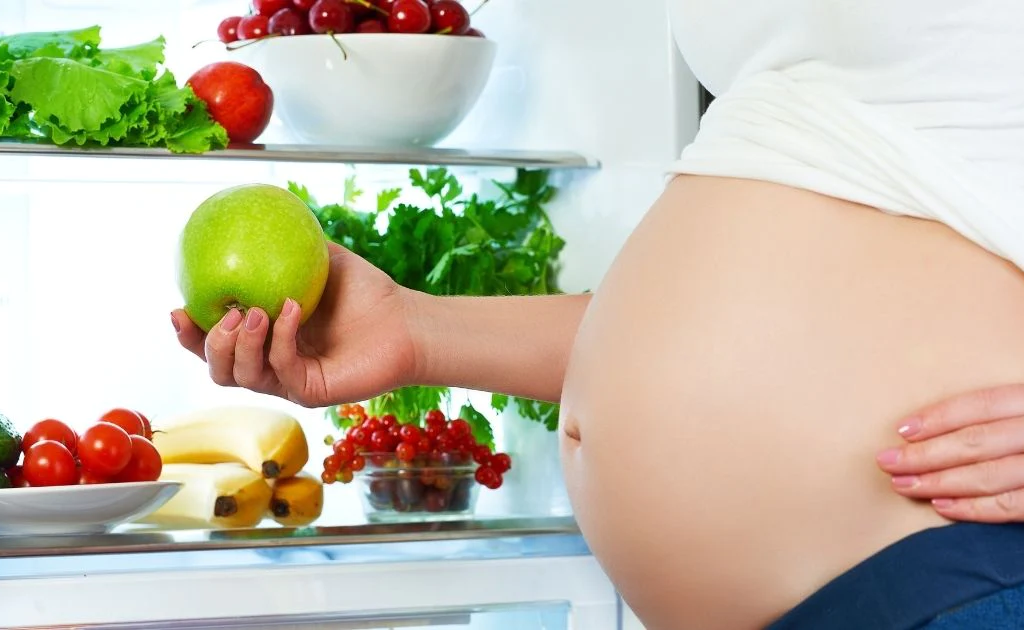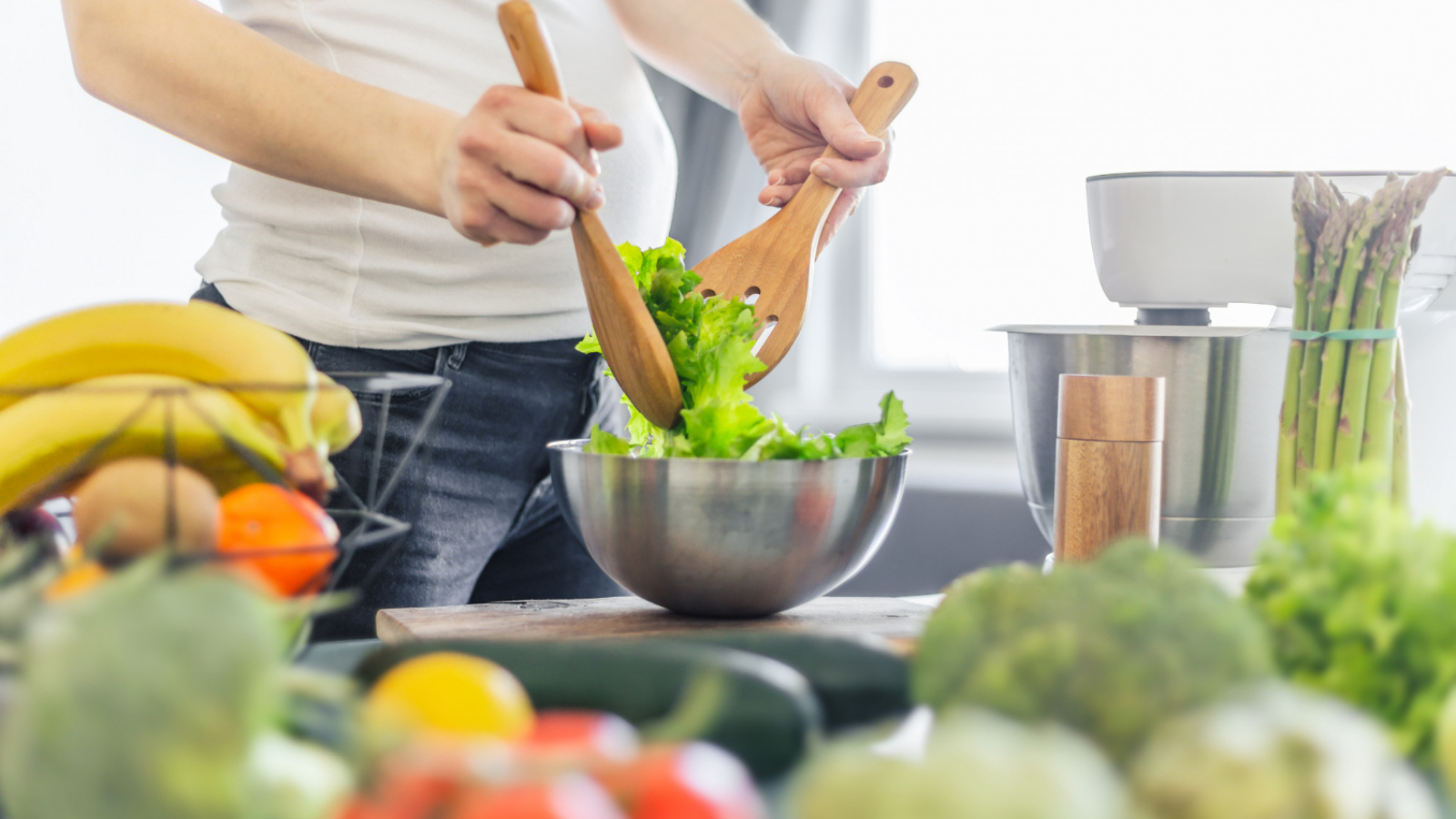A Healthy Pregnancy has three important trimesters. Some foods are very important in the early trimester than in the last trimester or sometimes even harmful similarly some food is only important in the last trimester. This plan will guide you for your overall fetus growth and development and also increases the expecting mother’s immunity.
In this we learn following
- Diet for Trimester by Trimester
- Postpartum diet and milk supply
First-trimester pregnancy diet plans (4 – 13 weeks)

In early pregnancy, many moms-to-be find that they have no desire to eat anything due to hormonal imbalance. Although you need a variety of nutrients in this stage to keep you and your baby healthy, still we don’t want you to load up yourself with a full plate of meals instead try food in small portions focusing on quality, not quantity to cover your nutritional bases.
The most important nutrients you need during the first trimester are folic acid, iron, and vitamin B6.
- Folic acid protects your baby from neural tube disorders such as spina bifida and other birth disorders like cleft palate. It also plays a key role in preventing neural tube defects.
- Take a prenatal vitamin daily and eat oranges, strawberries, green leafy vegetables, fortified breakfast cereals, kidney beans, nuts, cauliflower, and beets.
- Iron is essential to make healthy red blood cells that carry oxygen around your body and also meet the demands of your growing baby. Not having enough iron can leave you tired and breathless. Work good sources like beef, chicken, eggs, tofu, and spinach into your meal plan too.
- Protein. It’s key for muscle development for both you and your baby and supports uterine tissue growth. Good sources include eggs, Greek yogurt, and chicken.
- Dairy products, especially the fortified ones are a great source of calcium, vitamin D, protein, healthy fats, and folic acid. Add yogurt, and milk to your diet to gain the benefits of these nutrients.
- Bananas. Bland enough to be palatable for queasy stomachs, bananas are among the best dietary sources of potassium.
- Beans and lentils. Iron, folate, protein, and fiber are all hiding inside these small-but-mighty powerhouses.
- Ginger tea. Ginger products, like ginger tea or ginger chews, may help combat nausea.
What needs to avoid
- Avoid Smoking and E-cigarettes.
- Avoid alcohol.
- Avoid unpasteurized dairy products such as soft cheeses such as feta, Brie, and goat cheese.
- Avoid certain seafood like Mackerel and tilefish.
- Avoid processed meats such as hot dogs.
Second-trimester pregnancy diet plans (14 – 27 weeks)

Once you enter in a second, you feel and look beautiful. Your baby’s bones are growing and so is his brain. You need plenty of calcium and vitamin D for growing healthy bones and omega 3 is essential for your baby’s brain development.
- Need to continue Iron intact to protect from anemia, which increases the risk of complications, such as premature birth and postpartum depression.
The primary sources are cooked seafood, leafy green vegetables, nuts, beans and
lentils, whole grains, including bread and oatmeal breakfast cereals.
- Calcium is very important in the second trimester. It helps in the baby’s bones and teeth form, and it plays a role in the smooth running of the muscles, nerves, and circulatory system.
The primary sources are dairy products (milk, yogurt, pasteurized cheese), eggs, tofu,
white beans, almond, greens, such as kale, broccoli, and turnip greens
- Omega-3 fatty acids can benefit both mother and baby. These essential fatty acids support the heart, brain, eyes, immune system, and central nervous system. Omega-3 may prevent early delivery, lower the risk of developing preeclampsia, and decrease the likelihood of postpartum depression.
The primary sources are flaxseeds and chia seeds.
- Water needs more for pregnant than those who are not pregnant to stay hydrated. Water helps form the placenta and the amniotic sac. Dehydration during pregnancy can contribute to complications, such as neural tube defects and reduced breast milk production
What needs to avoid
- Avoid Raw meat, fish, eggs
- Avoid ready-to-eat meats and seafood including swordfish, shark, and king mackerel
- Avoid unpasteurized dairy products including soft cheeses such as feta, Brie, and goat cheese.
- Avoid artificial sweeteners
- Avoid alcohol
- Avoid caffeine (may be consumed in moderation)
Third-trimester pregnancy diet plans (28 – 40 weeks)

Now you enter the last and final trimester. Right now you feel heavy and tense about the weight you gain but don’t worry this is because your little life speeds up its development and now he is in the stage of gaining weight and that is the sign of a healthy baby. So be happy and keep continue with your healthy diet, these few ponds will go off after delivery.
Your baby gains weight quickly during the third trimester, and parts of their body continue to form. Eyes open, nails form, and hair growth. With all this stuff happening, the food choices you make are very important for the health of your baby.
- Keep continuing with Folic acid and other iron substitute sources to prevent yourself from anemia and also continue with calcium, protein, and omega-3 fatty acids.
- Vitamin A helps your baby’s bones grow. It also supports their skin and vision. Your baby’s eyes open and start to detect light in the third trimester.
The primary sources are Fish, Dairy products, Carrots, Spinach, Sweet potatoes,
Fortified cereals
- Choline helps your baby’s brain and spinal cord form.
The primary sources are Milk, Meat, Fish, Eggs, Peanuts, Potatoes, and Soy products
- Vitamin D helps you and your baby take in calcium. That helps strengthen the bones
and teeth of both you and your baby.
The primary sources are Fatty fish like salmon, breakfast cereal and milk, and sunlight,
Egg yolks, Cheese, Beef liver.
- Vitamin K is essential for blood to clot, which is important after childbirth.
The primary sources are Green leafy vegetables including collard and turnip greens,
kale, spinach, broccoli, Brussels sprouts, cabbage, lettuces, Soybean, and canola oil.
- Vitamin C helps your body take in iron. It also helps make your baby’s teeth, gums,
and bones healthy. Your immune system needs it, too.
The primary sources are Citrus fruits like oranges, tangerines, grapefruit, Kiwi,
Strawberries, Tomatoes, and Red and green peppers.
- Magnesium helps absorb calcium and repairs damaged body tissues, so you must
include magnesium-rich foods in your diet.
The primary sources are almonds, pumpkin seeds, barley, oats, beans, and artichokes.
What needs to avoid
- Avoid eating salty foods such as potato chips and fries.
- Raw veggies or uncooked veggies can lead to a gas problem, hence you must avoid eating raw veggies. Before eating any veggie, make sure you cook it well.
- Spicy foods can cause indigestion and heartburn during pregnancy, hence they are best avoided in the last trimester.
Postpartum diet and milk supply

For many new mamas, the desire to lose the baby weight may take precedence over nourishing their body with the right foods to support recovery, milk production, rest, and all the other tasks required to get through the day.
If you are planning to lose weight by continuing breastfeeding then you require approximately 400 to 500 additional calories per day. Keep continue the intake of the below healthy diet and remember that weight is slowly shed you can not go on to a crash diet while breastfeeding
- Predominantly whole foods — lots of fruits, vegetables, whole grains, good quality proteins (eggs, chicken, fish, seafood, nuts/seeds, organic tofu, full-fat dairy).
- Choose whole carb sources such as fruit, whole grains, and starchy vegetables, and pair them with protein-rich foods such as eggs, chicken, beans, nuts, and seeds.
- Healthy fats to help with satiety, but focus on portion sizes that promote health and prevent added weight gain.
- Stay hydrated, especially if breastfeeding, is critical. She recommends up to 3 liters of water daily.
- Aim to minimize snack foods and items that are high in added sugar, sodium, and saturated fat, including fried foods, soft drinks, and desserts.
- To keep your milk supply up and nourish your body, it’s critical to focus on consuming healthy, proteins, and carbohydrates like eggs and fatty fish are excellent sources of protein and healthy fats while vegetables, whole grains, and fruits provide fiber-rich carb sources. Nuts, seeds, avocados, and full-fat yogurt are more examples of healthy fat sources.
- Include healthy protein sources at each meal.
- Include vegetables in at least two meals.
- Start your day with fiber in conjunction with protein for the perfect combo of energy and sustenance (plus, fiber can help with post-labor constipation).
- Eat foods rich in nutrients like vitamin C, zinc, and selenium to help keep your immune system strong.



Leave A Comment